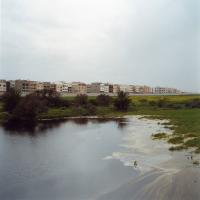 This exhibition addresses the question of cities and their connectivity in the Mediterranean over two radically different time periods. The first section follows a well known historical and geographical sequence through time and space, the Mediterranean of the 16th and 17th centuries, by exploring the connections between six cities (three from the Hapsburg Empire, and three from the Ottoman Empire) which were allied, in opposition, or in a power dynamic of domination. Here the itinerary of the exhibition reflects the geographical space of the Mediterranean : visitors enter in the east by Istanbul, circulate towards Venice and Algiers, before approaching the western part of the Mediterranean, from Genoa to Seville, concluding in Lisbon, the opening to the Atlantic. In the second section, the exhibition presents the cities of the contemporary Mediterranean : two metropolises (Marseille and Casablanca) and two megacities (Istanbul and Cairo).
This exhibition addresses the question of cities and their connectivity in the Mediterranean over two radically different time periods. The first section follows a well known historical and geographical sequence through time and space, the Mediterranean of the 16th and 17th centuries, by exploring the connections between six cities (three from the Hapsburg Empire, and three from the Ottoman Empire) which were allied, in opposition, or in a power dynamic of domination. Here the itinerary of the exhibition reflects the geographical space of the Mediterranean : visitors enter in the east by Istanbul, circulate towards Venice and Algiers, before approaching the western part of the Mediterranean, from Genoa to Seville, concluding in Lisbon, the opening to the Atlantic. In the second section, the exhibition presents the cities of the contemporary Mediterranean : two metropolises (Marseille and Casablanca) and two megacities (Istanbul and Cairo).
I'll visit
15.10.2018 | by vários
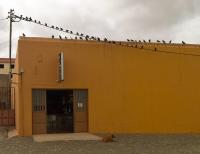 They are stories from which the narrator takes on the ambiguities of the discourses of negritude and whiteness, racism and antiracism, the plasticity of discrimination, the trap of stereotype, and the awareness of prejudice. These are stories that point us to a common past made up of very different memories.
They are stories from which the narrator takes on the ambiguities of the discourses of negritude and whiteness, racism and antiracism, the plasticity of discrimination, the trap of stereotype, and the awareness of prejudice. These are stories that point us to a common past made up of very different memories.
To read
02.10.2018 | by Margarida Calafate Ribeiro
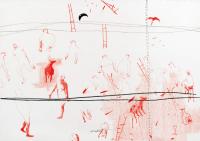 It is a fact: societies forget. Forgetting is a necessary process for creating collective identities, political solidarities and projects of social governance. It plays a role, too, in survival and rebeginning after civil wars or other crises in which societies break down.
It is a fact: societies forget. Forgetting is a necessary process for creating collective identities, political solidarities and projects of social governance. It plays a role, too, in survival and rebeginning after civil wars or other crises in which societies break down.
To read
02.10.2018 | by Hélia Santos
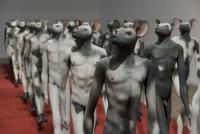 But we can't reverse History, even with the several attempts to naturalize it, to deny it and to manipulate it. Hence the importance of paying attention to the reluctant times we are now living in, which repeatedly insist on following the same old paradigms and refuse to make structural changes.
But we can't reverse History, even with the several attempts to naturalize it, to deny it and to manipulate it. Hence the importance of paying attention to the reluctant times we are now living in, which repeatedly insist on following the same old paradigms and refuse to make structural changes.
To read
22.09.2018 | by Joacine Katar Moreira
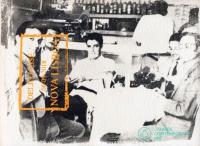 Taking these portraits as a starting point, what segregation does is to create contradictory sentiments between the delectable nostalgia of a privileged minority and the disavowal of a brutally exploited majority. All of history can be interpreted in multiple ways, like a work of art, and in Jasse’s work the myriad readings available to the observer are left open in an approach that is utterly unpretentious.
Taking these portraits as a starting point, what segregation does is to create contradictory sentiments between the delectable nostalgia of a privileged minority and the disavowal of a brutally exploited majority. All of history can be interpreted in multiple ways, like a work of art, and in Jasse’s work the myriad readings available to the observer are left open in an approach that is utterly unpretentious.
I'll visit
14.09.2018 | by Kiluanji Kia Henda
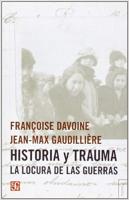 According to the authors themselves, reflecting on the complexity of the dilemma, “what cannot be said cannot be silenced either.” All of us at some point in our lives feel relief when it is possible to share something that affects us. We realize that whoever hears us, in addition to understanding us, validates and legitimizes what we are feeling with their gaze or words, thus confirming that we are not crazy.
According to the authors themselves, reflecting on the complexity of the dilemma, “what cannot be said cannot be silenced either.” All of us at some point in our lives feel relief when it is possible to share something that affects us. We realize that whoever hears us, in addition to understanding us, validates and legitimizes what we are feeling with their gaze or words, thus confirming that we are not crazy.
To read
14.09.2018 | by Ana Tironi
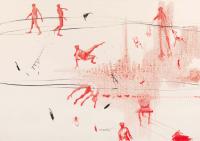 Creating this illusion of a post-utopian world that conceals war has a price: the absence in those three days and in that space of any type of explicit conflict, even contradiction: there is no place for the conflict of generations, gender, music, of tents of national and international producers, and so on.
Creating this illusion of a post-utopian world that conceals war has a price: the absence in those three days and in that space of any type of explicit conflict, even contradiction: there is no place for the conflict of generations, gender, music, of tents of national and international producers, and so on.
I'll visit
09.09.2018 | by António Pinto Ribeiro
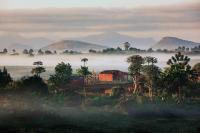 For many young people today, in Cape Verde, Guinea Bissau, Portugal, France, Brazil, the United States of America, Cabral represents the possibility of criticizing various forms of power, of resistance and of affirming their identities. The ways that Cabral has been taken up confirm that the originality of his praxis lies in its articulation of, and opposition to, different dimensions of domination and violence, from neo-colonialism to gender discrimination.
For many young people today, in Cape Verde, Guinea Bissau, Portugal, France, Brazil, the United States of America, Cabral represents the possibility of criticizing various forms of power, of resistance and of affirming their identities. The ways that Cabral has been taken up confirm that the originality of his praxis lies in its articulation of, and opposition to, different dimensions of domination and violence, from neo-colonialism to gender discrimination.
To read
04.08.2018 | by Sílvia Roque
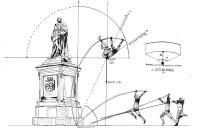 One of the most important discoveries to which the museum of the “Discoveries” could lead would, thus, be the perception that the uses of language are not innocent and the grammar of memory has always much more to do with the present than with the past – the perception, in short, that, in the whole controversy, what is at stake is not simply what we were, but, rather, what we are and, above all, what we want to be.
One of the most important discoveries to which the museum of the “Discoveries” could lead would, thus, be the perception that the uses of language are not innocent and the grammar of memory has always much more to do with the present than with the past – the perception, in short, that, in the whole controversy, what is at stake is not simply what we were, but, rather, what we are and, above all, what we want to be.
To read
14.07.2018 | by António Sousa Ribeiro
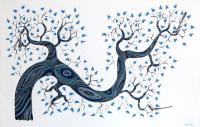 Now, forty-four years after the end of the War, for the former combatants who celebrate it in Belém, June 10 is, above all, a day when those who once fought together in Africa pay tribute to their comrades who died there. This year the meeting was celebrated for the 25th time. The same format unfolded: interfaith ceremony; speeches; a message from the President (in the Azores for other celebrations); parades, a cortège and the laying of flowers. Adriano Moreira did not speak, but he was a guest of honour. This tribute to the war-dead stages the consensus on which the meeting itself has always relied.
Now, forty-four years after the end of the War, for the former combatants who celebrate it in Belém, June 10 is, above all, a day when those who once fought together in Africa pay tribute to their comrades who died there. This year the meeting was celebrated for the 25th time. The same format unfolded: interfaith ceremony; speeches; a message from the President (in the Azores for other celebrations); parades, a cortège and the laying of flowers. Adriano Moreira did not speak, but he was a guest of honour. This tribute to the war-dead stages the consensus on which the meeting itself has always relied.
To read
13.07.2018 | by Fátima da Cruz Rodrigues
 With what significance do local and national public authorities in today’s Europe now want to include another narrative, not just the colonial narrative, in their official discourse about the past? Such a desire is clear in moments such as the Brussels municipality’s unanimous decision about Lumumba Square. That is, who has the responsibility to decide about how memories of colonialism should be brought forward in a Europe that is itself the child of colonialism? In other words, what does it mean that voices and visions of Europeans of African descent are taken into account in discourses about colonial legacy by a Europe that has struggled to recognize its own traumas and blind-spots?
With what significance do local and national public authorities in today’s Europe now want to include another narrative, not just the colonial narrative, in their official discourse about the past? Such a desire is clear in moments such as the Brussels municipality’s unanimous decision about Lumumba Square. That is, who has the responsibility to decide about how memories of colonialism should be brought forward in a Europe that is itself the child of colonialism? In other words, what does it mean that voices and visions of Europeans of African descent are taken into account in discourses about colonial legacy by a Europe that has struggled to recognize its own traumas and blind-spots?
City
03.07.2018 | by Felipe Cammaert
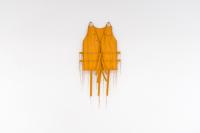 I said to one of them, who was very injured, “The troops can’t do anything for you, what do you want before you die?” He asked for water, I told the soldier to fetch water but gave him a signal not to go, that it wouldn’t be necessary. I picked up an FBP submachine gun, which wasn’t reliable, and fired a shot to kill him, but he stepped to the side.
I said to one of them, who was very injured, “The troops can’t do anything for you, what do you want before you die?” He asked for water, I told the soldier to fetch water but gave him a signal not to go, that it wouldn’t be necessary. I picked up an FBP submachine gun, which wasn’t reliable, and fired a shot to kill him, but he stepped to the side.
Mukanda
25.06.2018 | by Vasco Luís Curado
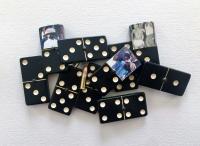 Which colonial or imperial history are we talking about? What do we know about this past, whether distant or recent? What do we really know about such fundamental questions as occupational or income structures in former colonial societies, or patterns of consumption, degrees of literacy, cultural practices, ideological possibilities, levels of political education and participation, or citizenship and land policies, in the city, countryside or in between?
Which colonial or imperial history are we talking about? What do we know about this past, whether distant or recent? What do we really know about such fundamental questions as occupational or income structures in former colonial societies, or patterns of consumption, degrees of literacy, cultural practices, ideological possibilities, levels of political education and participation, or citizenship and land policies, in the city, countryside or in between?
To read
02.06.2018 | by Miguel Bandeira Jerónimo
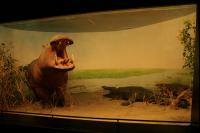 The newly modernised Central African Museum at Teruvren does not do away with the old, nor does it resolve the question of what purpose an African museum serves in Europe, today. Instead, those visiting when it re-opens will be confronted with the uneasy relationship between past and present that Tervuren will always embody - and with the lingering presence of King Leopold's ghost.
The newly modernised Central African Museum at Teruvren does not do away with the old, nor does it resolve the question of what purpose an African museum serves in Europe, today. Instead, those visiting when it re-opens will be confronted with the uneasy relationship between past and present that Tervuren will always embody - and with the lingering presence of King Leopold's ghost.
I'll visit
26.05.2018 | by Ana Naomi de Sousa
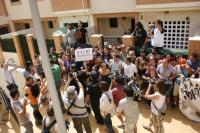 Politics isn’t, first and foremost, a matter of making allegations and raising awareness; there is no one straw that breaks the camel’s back, and what’s bad can be tolerated indefinitely. Instead, it is a sort of shedding of the skin, by which we become sensitive to this or allergic to that. Nor has it much to do with convincing (discourse), or seducing (marketing), but rather with opening all sorts of spaces to experience another way of living, another definition of reality, another vision of the world. In the struggle for hegemony, the skin – yours, mine, everyone’s – is the battlefield. JEUX SANS FRONTIÈRES #2
Politics isn’t, first and foremost, a matter of making allegations and raising awareness; there is no one straw that breaks the camel’s back, and what’s bad can be tolerated indefinitely. Instead, it is a sort of shedding of the skin, by which we become sensitive to this or allergic to that. Nor has it much to do with convincing (discourse), or seducing (marketing), but rather with opening all sorts of spaces to experience another way of living, another definition of reality, another vision of the world. In the struggle for hegemony, the skin – yours, mine, everyone’s – is the battlefield. JEUX SANS FRONTIÈRES #2
Games Without Borders
11.02.2018 | by Amador Fernández-Savater
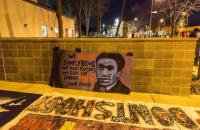 I want to first discuss the politics around teaching Fanon in today’s postcolonial world, and in particular in a post-Brexit Britain. What is it about Fanon that captures the hearts and minds of so many students, particularly students of colour? I then want to discuss the continuing debate around Fanon’s relationship to Marxism, looking at some of the ways in which Fanon’s work provides a refreshing lens on capitalism in the postcolonial world.
I want to first discuss the politics around teaching Fanon in today’s postcolonial world, and in particular in a post-Brexit Britain. What is it about Fanon that captures the hearts and minds of so many students, particularly students of colour? I then want to discuss the continuing debate around Fanon’s relationship to Marxism, looking at some of the ways in which Fanon’s work provides a refreshing lens on capitalism in the postcolonial world.
To read
20.08.2017 | by Sara Salem
 We would like to invite you on a journey. Not to cross the ocean but to plumb its surface. Forget the solid and luminous history of continents and their lighthouses that tear into the night with dazzling certitudes. Enter instead into the soft shadow of the depths, on the other side of the opaque mirror of water, into an endlessly changing landscape that ignores the old borders and bodily limits. Liquid movement of subversion, waves of voices as well as radio waves, telepathy. Space is the place. This is the place for no monuments other than the bones of those thrown overboard. Migrants whose only compass is despair, pregnant slave women who fertilize the ocean depths.
We would like to invite you on a journey. Not to cross the ocean but to plumb its surface. Forget the solid and luminous history of continents and their lighthouses that tear into the night with dazzling certitudes. Enter instead into the soft shadow of the depths, on the other side of the opaque mirror of water, into an endlessly changing landscape that ignores the old borders and bodily limits. Liquid movement of subversion, waves of voices as well as radio waves, telepathy. Space is the place. This is the place for no monuments other than the bones of those thrown overboard. Migrants whose only compass is despair, pregnant slave women who fertilize the ocean depths.
Afroscreen
20.08.2017 | by vários
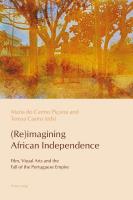 the aim of (Re)Imagining African Independence. Film, Visual Arts and Fall of Portuguese Empire is not to undertake an exhaustive survey and analysis of the filmic and audio-visual materials related to the Portuguese post-colonial situation. This collection of essays proposes, more modestly, and first of all, to contribute to a better knowledge of political propaganda films shot during and straight after the liberation wars. Shot by African and foreign filmmakers in different contexts and according to different agendas, these films allow us to explore such diverse questions as how the liberation struggles and Portuguese colonialism were envisaged according to opposing cold-war and geopolitical rhetorics, or how the newly independent countries imagined themselves as nations.
the aim of (Re)Imagining African Independence. Film, Visual Arts and Fall of Portuguese Empire is not to undertake an exhaustive survey and analysis of the filmic and audio-visual materials related to the Portuguese post-colonial situation. This collection of essays proposes, more modestly, and first of all, to contribute to a better knowledge of political propaganda films shot during and straight after the liberation wars. Shot by African and foreign filmmakers in different contexts and according to different agendas, these films allow us to explore such diverse questions as how the liberation struggles and Portuguese colonialism were envisaged according to opposing cold-war and geopolitical rhetorics, or how the newly independent countries imagined themselves as nations.
Afroscreen
10.07.2017 | by Maria do Carmo Piçarra and Teresa Castro
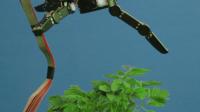 Permanecemos incapazes de escutar e compreender o diálogo entre uma androide ameríndia e o milho transgénico – a quem pertence a humanidade, afinal de contas? Para a coexistência destas diferentes cosmologias – modernas, animistas ou tecnofílicas – não existe sonho ou ficção capaz de as apreender num todo, apenas a perceção de que o mundo lhes dá lugar incessantemente e que a posição de inimigo, mais do que a natureza ou a cultura, marca as suas fronteiras.
Permanecemos incapazes de escutar e compreender o diálogo entre uma androide ameríndia e o milho transgénico – a quem pertence a humanidade, afinal de contas? Para a coexistência destas diferentes cosmologias – modernas, animistas ou tecnofílicas – não existe sonho ou ficção capaz de as apreender num todo, apenas a perceção de que o mundo lhes dá lugar incessantemente e que a posição de inimigo, mais do que a natureza ou a cultura, marca as suas fronteiras.
I'll visit
10.07.2017 | by Pedro Lapa
 Miranda’s work is deeply marked by family memories and experiences and, more broadly, by the collective histories of Portugal and Angola. In Panorama, her focus on the psychic and physical remnants of several pasts – colonial, post-independence, post-Cold War, post-civil war – within natural, urban and architectural landscapes of Luanda and beyond serves the larger purpose of examining the contradictions of the present and imagining alternative futures.
Miranda’s work is deeply marked by family memories and experiences and, more broadly, by the collective histories of Portugal and Angola. In Panorama, her focus on the psychic and physical remnants of several pasts – colonial, post-independence, post-Cold War, post-civil war – within natural, urban and architectural landscapes of Luanda and beyond serves the larger purpose of examining the contradictions of the present and imagining alternative futures.
I'll visit
05.07.2017 | by Ana Balona de Oliveira